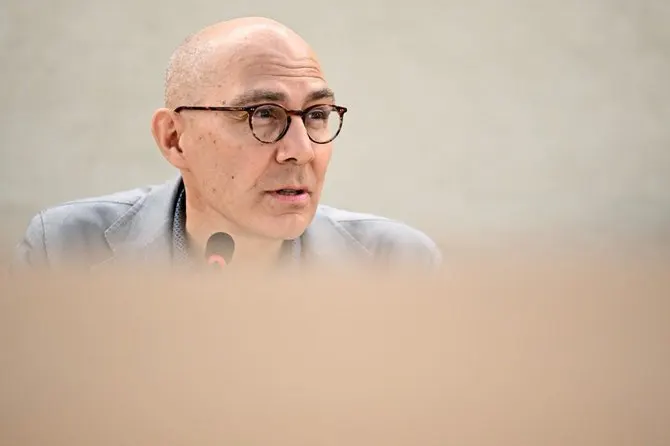The UN rights chief called Monday for Libyan authorities and the international community to step up accountability efforts in the conflict-ravaged country, as a probe into war crimes wrapped up.
“Libyan authorities, armed groups, smugglers and human traffickers should not assume that the eyes of the international community have now left Libya,” Volker Turk said.
“It is crucial that we redouble efforts to secure accountability for past violations and continue to monitor the reality on the ground to prevent future violations.”
Turk’s comments came as the so-called UN Independent Fact-Finding Mission on Libya, set up by the UN Human Rights Council in 2020, wound up its operations and handed over its archives and the evidence it had collected to his office in Geneva.
Instead of prolonging the investigation, the rights council is expected this week to adopt a resolution calling merely for the UN to provide “technical assistance” toward improving the rights situation in Libya.
In its final report issued last week, the fact-finding mission voiced deep concern about the deteriorating human rights situation in the conflict-torn North African country.
The mission concluded that there were “grounds to believe a wide array of war crimes and crimes against humanity have been committed by state security forces and armed militia groups.”
It warned among other things that migrants stuck in Libya while trying to reach Europe are being systematically tortured and forced into sexual slavery.
The team recommended that the UN rights office “establish a distinct and autonomous mechanism with an ongoing mandate to monitor and report on gross human rights violations in Libya.”
That effort should be aimed at “supporting Libyan reconciliation efforts and assisting the Libyan authorities in achieving transitional justice and accountability,” it said.
Turk voiced support for that recommendation Monday, and said his office also remained committed to working with authorities to create a victim-centered plan for transitional justice and accountability.
Libya has seen more than a decade of stop-start conflict since the 2011 revolt that toppled dictator Muammar Qaddafi, with a myriad of militias forming opposing alliances backed by foreign powers.
It remains split between a nominally interim government in Tripoli in the west, and another in the east backed by military figurehead Khalifa Haftar.—AFP










